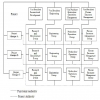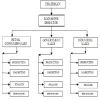Home | ARTS | Management Concepts & Organisational Behaviour
|
Barriers to Effective Delegation - Delegation Of Authority And Decentralization
Management Concepts & Organisational Behaviour - Delegation Of Authority And Decentralization
Barriers to Effective Delegation - Delegation Of Authority And Decentralization
Posted On :
To make delegation effective, the spirit and willingness of both the parties are crucial.
Barriers to Effective
Delegation
To make delegation effective, the spirit and willingness of both the parties are crucial. Though delegation is a powerful tool to motivate the subordinates and to develop managerial skills in them, if adequate care is not exercised the result may be considerable anxiety for both superiors and subordinates. Following are some of the reasons why delegation often fails in organizations to which both superiors and subordinates are responsible.
Lack of Confidence in Subordinates: Lack of trust and confidence on subordinates’ abilities and skills make the superiors reluctant to delegate. As a result, subordinates lose initiative and frequently seek the guidance of the bosses to know whether they are doing the things correctly.
The “I can do it better myself fallacy”: Some managers always suffer from a feeling that they only can do the job better. Consequently two things happen. First, spending time on a task a subordinate could perform and as a result the manager may not be able to perform other important tasks like policy formulation and supervision. Second, unless the manager allows subordinates to attempt new tasks, the subordinates will be unable to develop their skills. Thus by insisting on doing things themselves managers often fail in their responsibility for training and grooming subordinates higher levels responsibilities.
Lack of ability to direct: Some managers become so involved in day-to-day operations that they ignore to see the broader picture. Unable to understand the long term perspective of the work flow, they do not fully realize the importance of distributing work among subordinates. Some managers deliberately do this because of lack of confidence in their supervisory abilities.
Aversion to Risk: Since the superior can not absolve himself of the final performance of the task, he may fear that delegating the job
Absence of Selective Controls: When certain duties are delegated to subordinates, the superior has to ensure proper controls in the form of feedback about performance. It gives the superior the opportunity of knowing the problem before much damage takes place. If controls are not adequate and effective, manager has good reason to avoid authority delegation.
To make delegation effective, the spirit and willingness of both the parties are crucial. Though delegation is a powerful tool to motivate the subordinates and to develop managerial skills in them, if adequate care is not exercised the result may be considerable anxiety for both superiors and subordinates. Following are some of the reasons why delegation often fails in organizations to which both superiors and subordinates are responsible.
Lack of Confidence in Subordinates: Lack of trust and confidence on subordinates’ abilities and skills make the superiors reluctant to delegate. As a result, subordinates lose initiative and frequently seek the guidance of the bosses to know whether they are doing the things correctly.
The “I can do it better myself fallacy”: Some managers always suffer from a feeling that they only can do the job better. Consequently two things happen. First, spending time on a task a subordinate could perform and as a result the manager may not be able to perform other important tasks like policy formulation and supervision. Second, unless the manager allows subordinates to attempt new tasks, the subordinates will be unable to develop their skills. Thus by insisting on doing things themselves managers often fail in their responsibility for training and grooming subordinates higher levels responsibilities.
Lack of ability to direct: Some managers become so involved in day-to-day operations that they ignore to see the broader picture. Unable to understand the long term perspective of the work flow, they do not fully realize the importance of distributing work among subordinates. Some managers deliberately do this because of lack of confidence in their supervisory abilities.
Aversion to Risk: Since the superior can not absolve himself of the final performance of the task, he may fear that delegating the job
Absence of Selective Controls: When certain duties are delegated to subordinates, the superior has to ensure proper controls in the form of feedback about performance. It gives the superior the opportunity of knowing the problem before much damage takes place. If controls are not adequate and effective, manager has good reason to avoid authority delegation.
Inadequate Information and
Resources: The subordinate lacks the
information and resources needed to do the job successfully. Some managers with
a view to let down their subordinates may deliberately make the delegation
unclear. As a result the subordinate lands himself in confusion as to the exact
nature of the duties and the authority that he can exercise. The motive of the
superior in such cases may be to make the subordinate fail in the execution.
Tags : Management Concepts & Organisational Behaviour - Delegation Of Authority And Decentralization
Last 30 days 2348 views















